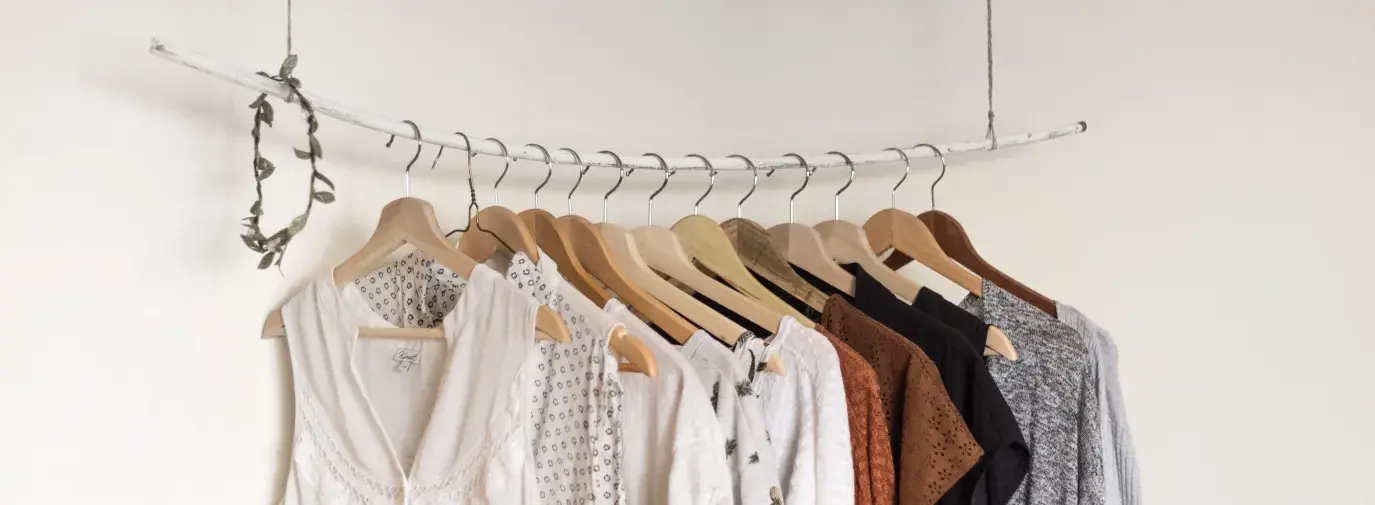Clothing supply chains – from field to factory to store -- can be long, complex, and often seemingly opaque, and even in cases where brands promote their transparency or sustainability, they often fall short in sharing enough information with consumers so that they can make an informed decision. As our toxic textiles campaign highlights, the clothing industry takes a huge toll on the environment and the health of workers. Vague corporate messaging about sustainability programs and corporate impacts can leave a green shopper at a loss for where to buy clothes.
Is it even possible to find a sustainable clothing company?
The Toxic Textiles report found that brands often have one ‘sustainable’ line of clothing, but a vast majority of their products aren’t made with people or the planet in mind. This puts the burden on consumers to research each piece of clothing they want to buy, which most people don’t have time to do. In order to transform the clothing industry, we need brands integrating environmentally and socially responsible practices across their entire business model.
While it can be difficult, Maven Women, a Green Business Network member, has done just that. The founder, Rebecca Ballard, started her career working on human and labor rights issues, but she was having trouble finding clothing options that both were well-fitting and fit her values. So, Rebecca set out to make her own socially and environmentally conscious clothing brand – Maven Women. Maven Women is now a leader in responsibly-sourced clothing, but Rebecca found it challenging at times to find the right partners or suppliers, which resulted in a three year process of creating her supply chain.
For the clothes produced domestically, Maven Women works with Lefty Production Co., an LA based clothing production company. Lefty pays employees a living wage and provides a clean and safe work environment. Additionally, the cotton used in Maven Women’s clothing is GOTS certified, which lessens dangerous chemical exposure to both workers and consumers.
Maven Women’s clothing also is meant to last. It is the opposite of the fast fashion clothing that is the norm these days, and is accelerating the industry’s negative impacts on people and the planet. The high demand for cheap clothing, perpetuated by the fast fashion industry, creates a ripple effect of problems. High, unpredictable demands for clothing creates production stress for suppliers, which can result in labor abuses within clothing manufacturing facilities. On top of this, cheap clothes often do not last as long, resulting in increased waste.
Between 2000 and 2015, clothing production doubled, and during that same period, the clothing that Americans dispose of annually nearly tripled! The EPA estimates that Americans create 16 million tons of textile waste a year and 62% of this waste ends up in landfills.
In addition to making clothes built to last, Maven Women lessens their waste impact by donating clothing scraps to local foundations. In India, their scraps are donated to a foundation teaching women new skills; in the US, scraps are donated to several women-led businesses.
As noted in Green America’s From Fast to Fair Fashion, “choosing ethical and sustainable fashion goes beyond voting with your dollar—it manifests substantial change for disenfranchised women workers around the world. Clothing brands based on fair trade principles empower women on both sides of the supply chain.”
Maven Women also calculates the positive impact the shopper has by opting to buy new from Maven Women, rather than buying new from a traditional clothing brand. To read more about Maven Women’s environmental impact, check out this blog by Green Story.
What is the individual’s role in the sustainable clothing industry?
When Rebecca started her Maven Women journey, she realized she wasn’t alone in wanting socially and environmentally conscious clothing. The greater the demand for ethically made clothing and the level of transparency that Maven Women provides, the more sustainable clothing options there will be. While Green America recommends buying used clothing when you can to lower your impact on the planet, buying new can still help to move the industry forward. For those times, when you aren’t able to shop second hand, looking for and supporting brands similar to Maven Women is a great option. Maven Women and other Green Business Members, such as Sympatico Clothing, Natural Clothing Company, and Organic Attire, demonstrate that a business model that prioritizes the planet and people is possible.
For $40 off your first order from Maven Women, use the discount code "GreenAmerica" at check out.
Here are some tips to spot leaders in sustainable clothing:
Look to see if the brands:
- Are measuring their waste impacts; incorporating more recycling & recycled products into their supply chain.
- Are taking part in industry initiatives to help standardize information tracking.
- Have chemical management policies, such as public MRSLs and RSLs, and/or are a part of industry initiatives, such as ZDHC or Bluesign, to phase out the most dangerous chemicals.
- Have water treatment plans as well, to help clean up water that is discharged.
- Share goals and benchmarks to incorporate more sustainable textiles into their supply chains and are not limiting sustainable alternatives to one line of clothing or one type of clothing.
- Are transparent about labor practices and sourcing.
Additional resources:
- If you would like to learn more about what it takes for a clothing company to become a Green Business Member, check out How to be a Sustainable Apparel Business.
- If you would like to learn more about Maven Women and Rebecca’s story, I highly recommend their blog!
- For more examples of how to determine if a corporate led effort is green or greenwashing, in our last issue of The Green American Magazine, we took a deeper dive into three popular brands with “green options”.
- To take a deep dive into the fashion industry see our Winter 2019 issue of the Green American Magazine: Unraveling the Fashion Industry.




